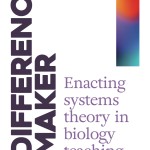Over on eX/Twitter, a debate has been raging — with all the subtlety and nuance of your typical Twitter debate. The opening salvo was something like:
“Despite what you’ve heard, all people learn the same way.”
You can imagine what happened next. (Free advice: look away.)
Despite all the Twitter mishegas, the underlying question is useful and important — so I’ll do my best to find the greys among the black-vs-white thinking.
Here goes.
Useful…
I suspect that this claim — “all people learn the same way” — got started as a rebuttal to various myths about “meaningful sub-categories of learners.” Alas, most of those proposed sub-categories turn out not to be true or useful.
- No, learning styles theory has not held up well.
- No, the theory of “multiple intelligences” has no useful teaching implications. (And Howard Gardner didn’t claim that it did.)
- No, “left-brain, right-brain” dichotomies don’t give us insights into teaching and learning.
- No, the Myers-Briggs Type Indicator doesn’t tell us how to manage classrooms or lesson plans. *
- My British friends tell me about some system to sort students according to different colored hats. (I do not think I’m making this up.)
- (I’ve written about these claims so many times that I’m not going to rehash the evidence here.)
Whenever anyone says “we can usefully divide students into THIS kind of learner and THAT kind of learner,” we should be highly suspicious and ask to see lots of research. (If you want to evaluate that research critically, I can recommend a good book.)
Well, the shortest rebuttal to this sort of claim is: “Those sub-categories don’t exist. ALL PEOPLE LEARN THE SAME WAY.”
Now, any time someone makes an absolute claim about teaching and learning in six words and seven syllables, you know that claim is oversimplified.
But you can understand the temptation to cut off all those untrue claims with a brusque rejoinder. That temptation pulses all the stronger because those untrue claims persist so stubbornly. (In 2025, schools of education are STILL teaching learning styles.)
…and (substantially) True
This claim (“all people…”) isn’t simply useful; it’s also largely accurate.
For example:
At the neuro-biological level — neurons, neurotransmitters, synapses, myelin, etc. — long-term memories form the same way for everyone.
As far as we know…
- men and women
- tall people and short people
- introverts and extroverts
- people who think cilantro tastes like soap, and the rest of us
… everyone forms new neural networks (that is: “learns”) the same way. (I should emphasize that our understanding of this neural process is still VERY basic. We’ve still got SO MUCH to learn.)
When we switch our analysis from neuroscience to psychology, the claim still holds up well.
For instance:
- Everyone uses working memory to combine new information from the environment with concepts and facts stored in long-term memory.
- Everyone depends on a complex of systems that we call “attention” to control the flow of all that information.
- Everyone responds simultaneously with emotion and cognition to any given set of circumstances. (These two systems overlap so much that distinguishing between them creates lots o’ challenges.)
And so forth.
Given all these similarities, cognitive science research really can offer up advice that applies to almost everyone in almost all circumstances.
Yes: we really must manage working memory load so that students can build concepts effectively.
Yes: retrieval practice helps almost all learners consolidate and transfer almost all school learning. (Yes, “retrieval-induced forgetting” is a concern, but can be managed if we strategize effecively.)
Yes: spacing and interleaving enhance learning in most circumstances.
And so on…
Given the broad usefulness and truth of the “we-all-learn-the-same” claim, I certainly understand why it’s tempting to make it — and to defend it.
Exceptions Matter
I’ve written that the claim is “broadly” useful and true; but I don’t think it’s ALWAYS true.
For example:
Students with diagnoseable learning differences really might learn differently.
For instance: dyslexic readers combine distinctive neural networks to get their reading done. Those readers almost certainly benefit from distinct teaching strategies. In other words: by any reasonable definition, they “learn differently.”
Another example:
All learning depends on prior knowledge.
That claim — which sounds like “all people learn the same way” — also suggests that people learn differently.
Let’s imagine that you know A LOT more about opera than I do. (This assumption is almost certainly true.) If you and I both attend an advanced lecture about an obscure opera — “Der Häusliche Krieg” — your learning will function quite differently from mine. Because you’re an expert and I’m a novice, we will learn differently.
Lots of individual differences will bring teachers to this same point.
Because I teach English, I teach grammar — and MANY of my students simply hate grammar. Their prior experience tells them it’s boring, useless, and impossible to understand.
On the one hand, those enduring cognitive principles listed above (working memory, retrieval practice, etc.) do apply to them. But their emotional response to the content will in fact shape the way they go about learning it.
Core principles of learning apply, and my students’ prior experience means that their learning process might well be different.
Beyond Twitter Rage
Twitter generates lots of extreme debates because complex ideas can’t be boiled down into its trivializing format.
So it’s not surprising that a nuanced understanding of “individual differences within important, broad, and meaningful similarities” doesn’t work in Twitter-ville.
At the same time, I do think our discussions of learning should be able to manage — and to focus on — that nuance.
Our students will learn more when we recognize BOTH the broad cognitive principles that shape instruction, AND the individual variation that will be essential within those principles.
Back in 2019, Paul Kirschner wrote a blog post on this same point. His “digestive system” analogy is VERY helpful.
* A few years back, I emailed the MBTI people to ask for research supporting their claims. They did not send me any. They did, however, sign me up for their newsletter.




